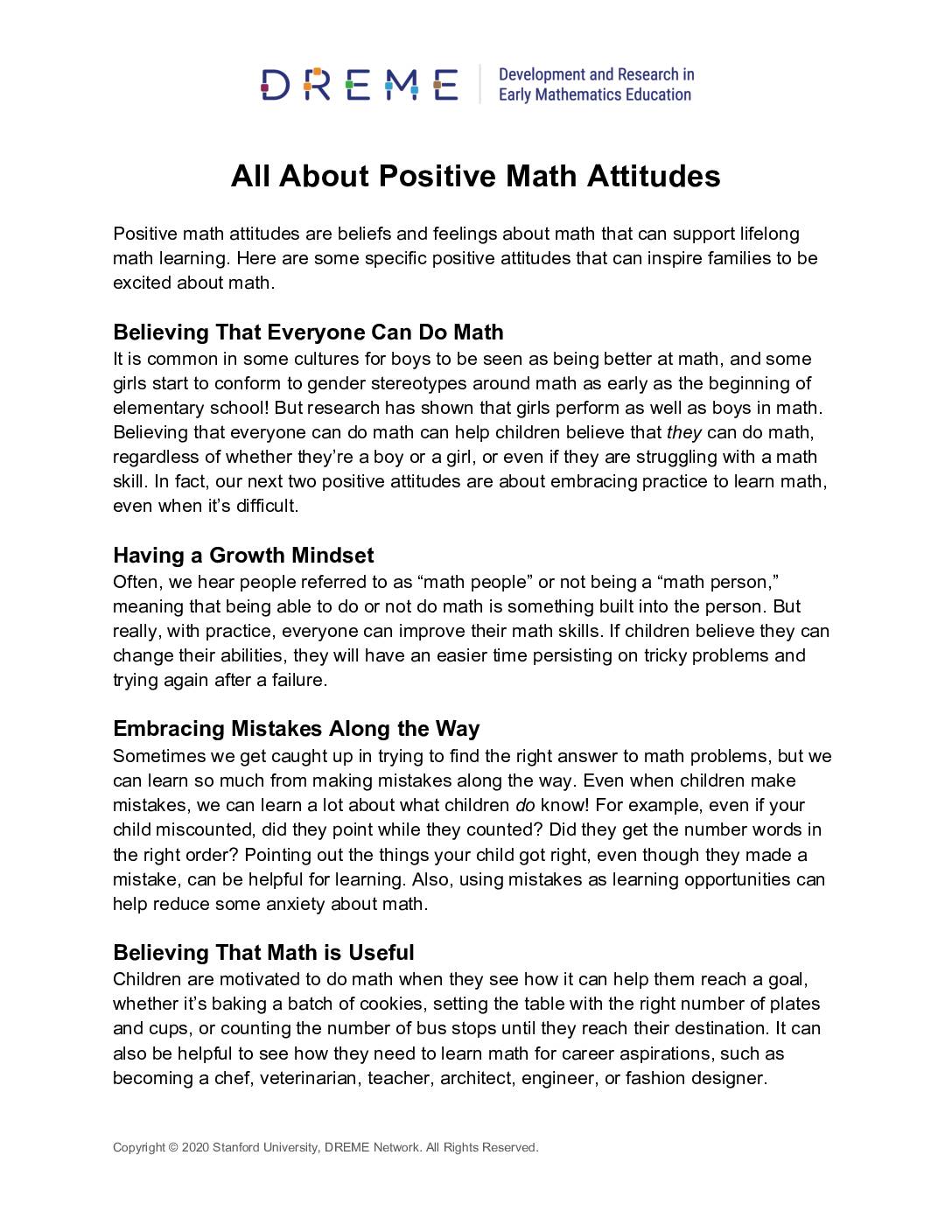Positive math attitudes are beliefs and feelings about math that can support lifelong math learning. Here are some specific positive attitudes that can inspire families to be excited about math.
Believing That Everyone Can Do Math
It is common in some cultures for boys to be seen as being better at math, and some girls start to conform to gender stereotypes around math as early as the beginning of elementary school! But research has shown that girls perform as well as boys in math. Believing that everyone can do math can help children believe that they can do math, regardless of whether they’re a boy or a girl, or even if they are struggling with a math skill. In fact, our next two positive attitudes are about embracing practice to learn math, even when it’s difficult.
Having a Growth Mindset
Often, we hear people referred to as “math people” or not being a “math person,” meaning that being able to do or not do math is something built into the person. But really, with practice, everyone can improve their math skills. If children believe they can change their abilities, they will have an easier time persisting on tricky problems and trying again after a failure.
Embracing Mistakes Along the Way
Sometimes we get caught up in trying to find the right answer to math problems, but we can learn so much from making mistakes along the way. Even when children make mistakes, we can learn a lot about what children do know! For example, even if your child miscounted, did they point while they counted? Did they get the number words in the right order? Pointing out the things your child got right, even though they made a mistake, can be helpful for learning. Also, using mistakes as learning opportunities can help reduce some anxiety about math.
Believing That Math is Useful
Children are motivated to do math when they see how it can help them reach a goal, whether it’s baking a batch of cookies, setting the table with the right number of plates and cups, or counting the number of bus stops until they reach their destination. It can also be helpful to see how they need to learn math for career aspirations, such as becoming a chef, veterinarian, teacher, architect, engineer, or fashion designer.
